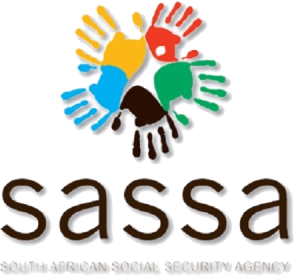Government & Disability Grants
Contents: To jump to the topic you would like, click on the links below
Introduction
A Government Grant grant is money that is given by the government to people who are eligible for social assistance. A person is entitled to the appropriate social assistance if he or she:
- Is eligible in terms of section 6,7,8,9,10,11,12 or 13 of the government gazette June 2004.
- Subject to section 17, is resident in the Republic;
- Is a South African citizen or is a member of a group or category of persons prescribed by the Minister, with the concurrence of the Minister of Finance, by notice of the Gazette;
- Complies with any additional requirements or conditions prescribed in terms of subsection (2)
- Applies for social assistance in accordance with section 14 (1).
- The Minister may prescribe additional requirements or conditions in respect of:
- income thresholds
- means testing
- age limits, disabilities and care dependency
- proof of and measures to establish or verify identity, gender, age, citizenship, family relationships, care dependency, disabilities, foster child and war veterans’ status
- forms, procedures and processes for applications and payments
- measures to prevent fraud and abuse.
Care Dependency Grant
A person is, subject to section 5, eligible for a care dependency grant if he or she is a parent, primary care giver or foster parent of a child who requires and services due to his or her physical or mental disability.
A person contemplated in paragraph (a) is not eligible for such a grant if the child is cared for on a 24 hour basis for a period exceeding six months in an institution that is funded by the state.
A person must be between 1 and 18 years of age and will receive a monthly amount.
Disability Grant
If you have a physical or mental disability which makes you unfit to work for a period of longer than six months, you can apply for a disability grant.
You get a permanent disability grant if your disability will continue for more than a year and a temporary disability grant if your disability will last for a continuous period of not less than six months and not more than 12 months. A permanent disability grant does not mean you will receive the grant for life, but that it will continue for longer than 12 months. A person is, subject to section 5, eligible for a disability grant, if he or she:
- has attained the prescribed age
- is, owing to a physical or mental disability, unfit to obtain by virtue of any service, employment or profession the means needed to enable him or her to provide for his or her maintenance.
- A person must be 18 years and over and will receive a monthly amount.
Frequently Asked Questions
How do you know if you qualify?
To qualify, you must:
- be a South African citizen or permanent resident or refugee and living in South Africa at the time of application
- be between 18 and 59 years old.
- not be cared for in a state institution
- have a 13-digit, bar-coded identity document (ID)
- not earn more than R69 000 if you are single or R 138 000) if married.
- not have assets worth more than R990 000 if you are single or R1 980 000 if you are married
- undergo a medical examination where a doctor appointed by the state will assess the degree of your disability
- bring along any previous medical records and reports when you make the application and when the assessment is done.
The doctor will complete a medical report and will forward the report to South African Social Security Agency (SASSA).
The report is valid for three months from the date you are assessed.
Note: If you are under 18 and need permanent care due to your disability, your primary caregiver can apply for a Care Dependency Grant. If you don’t have an ID, you will be required to complete an affidavit and provide proof of having applied for the document from the Department of Home Affairs. If you have not applied for an ID, you must do so within three months of applying for the grant.
How much will you get?
The maximum is R1 500 per month.
How will you be paid?
A grant will be paid to you through one of the following methods:
- cash at a specific pay point on a particular day
- electronic deposit into your bank account, including Postbank (the bank may charge you for the service)
- an institution not funded by the State – e.g. home for people with disabilities.
When may your grant be suspended?
The following may result in the suspension of your grant:
- when your circumstances change
- the outcome of a review
- if you fail to co-operate when your grant is reviewed
- when you commit fraud or misrepresent yourself
- if there was a mistake when your grant was approved.
When may your grant lapse?
The grant will lapse when you:
- pass away
- are admitted to a state institution
- do not claim for three consecutive months
- are absent from the country.
Please note: If you are admitted to an institution that has a contract with the state to care for you, the grant is reduced to 25% of the maximum amount of the grant. That will be done with effect from the 4th month following your admission to that institution. The reduced grant is re-instated immediately from the date you are discharged from the institution.
What you should do
- Complete a disability grant application form at your nearest South African Social Security Agency (SASSA) office in the presence of a SASSA officer.
- Submit the following:
- Your 13-digit bar-coded identity document (ID). If you don't have an ID:
- You must complete an affidavit on a standard SASSA format in the presence of a Commissioner of Oaths who is not a SASSA official.
- You must bring a sworn statement signed by a reputable person (like a councillor, traditional leader, social worker, minister of religion or school principal) who can verify your name and age.
- The SASSA official will take your fingerprints.
- You will be referred to the Department of Home Affairs to apply for the ID while your application is processed. If you don’t get an ID, your grant will be suspended.
- A medical report and functional assessment report confirming your disability.
- Proof of marital status (if applicable).
- Proof of residence.
- Proof of income or dividends (if any).
- Proof of assets, including the municipal value of your property.
- Proof of private pension (if any).
- Your bank statements for the past three months.
- Refugee status permit and 13-digit refugee ID.
- Unemployment Insurance Fund (UIF) document ('blue book') or discharge certificate from your previous employer if you were employed.
- A copy of the will and the first and final liquidation and distribution accounts, if your spouse died within the last five years.
- Your 13-digit bar-coded identity document (ID). If you don't have an ID:
- After submitting your application you will be given a receipt to keep as proof of application.
What if your application is not approved?
- The social security office will inform you in writing whether or not your application was successful.
- If your grant is not approved, the social security office will state the reasons why your application was unsuccessful. You can then appeal to the Minister of Social Development in writing, explaining why you disagree.
- Appeal within 90 days of receiving notification about the outcome of your application.
How long does it take
- It may take up to three months to process your application.
- If your grant is approved, you will be paid from the day you applied.
How much does it cost
The service is free.
Forms to complete
Application forms are not available online, but you can get them from your nearest (SASSA) office.
Who to contact
South African Social Security Agency (SASSA)
Where to apply for a grant
Families can apply at the government welfare offices or Department of Social Development offices. For more information about these grants, phone the Helpline on 0800 601 011.
What you will need to apply for a grant:
- Proof of income
- Birth certificate for the person that you are applying for
- A bar coded identity document (and a copy certified)
- A death certificate if one or both of the child’s parents are dead
- A marriage certificate or divorce order.
- There is NO charge when making an application for a grant.
For more information regarding social grants please go to: http://www.info.gov.za/aboutsa/socialdev.htm#psg
Contact details for provincial SASSA offices for social grants please go to: SASSA Provincial Offices
Free Health Care for Disabled People at Hospital Level
The Minister of Health, in her budget speech, on 13 May 2003, indicated that free health care for people with disabilities would be implemented on 1 July 2005 services would include outpatient and inpatient hospital services. This service should be seen in the broader context of social security and poverty relief – spreading the risk and subsidizing the poor. However the question comes into play as to how much Free Health Care is given. We at DSSA need to ensure that it is QUALITY and more than just “basic” health care given. In many instances babies with DS have been refused life saving heart operations because of their disability.

